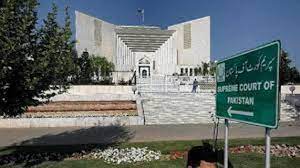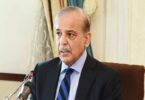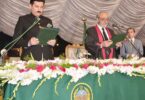F.P. Report
ISLAMABAD: The Supreme Court (SC) on Tuesday stopped accountability courts from issuing a final verdict in graft cases. The court issued the directives while hearing the first-ever intra-court appeals (ICAs) against its Sept 15 majority judgment, which struck down amendments to the accountability law.
It adjourned the hearing till the detailed verdict on the law clipping the chief justice’s powers is released. The larger bench headed by Chief Justice of Pakistan (CJP) Qazi Faez Isa and including Justice Aminuddin Khan, Justice Jamal Khan Mandokhail, Justice Athar Minallah and Justice Syed Hasan Azhar Rizvi took up two ICAs one filed by the federal government and the other by former SSGCL managing director Zuhair Ahmed Siddiqui.
The five-judge SC bench took up the ICAs in line with its Oct 11 short order in which the PDM government-made law to regulate the affairs of the top court namely the Supreme Court (Practice and Procedure) Act 2023 was upheld. On Oct 26, the Supreme Court had also issued a circular for the information of all concerned that any appeal filed in the top court against the decisions taken on petitions moved under Article 184(3) of the Constitution should be moved in the form of ICA.
During the hearing, Attorney General for Pakistan (AGP) Mansoor Usman Awan appeared before the court as the federal government’s counsel while Farook H. Naek was present as Siddiqui’s lawyer. Naek urged the court to suspend its verdict on the accountability law tweaks. However, it was rejected. Noting that the detailed verdict on the law clipping the CJP’s powers was not released yet, the apex court adjourned the hearing till then. At the outset of the hearing, AGP Awan came to the rostrum and informed the court that Khan was abroad and had sought adjournment of the hearing. Here, CJP Isa noted, “We have also received a few other applications.”
He then asked Naek if he was supporting the SC verdict on the NAB law or opposing it, to which the latter replied that he was opposing it. The chief justice then observed, “You have written that according to the practice and procedures [law], a five-member bench should hear the NAB amendments case.” He then asked Naek to present his arguments if he was still maintaining the same position.







